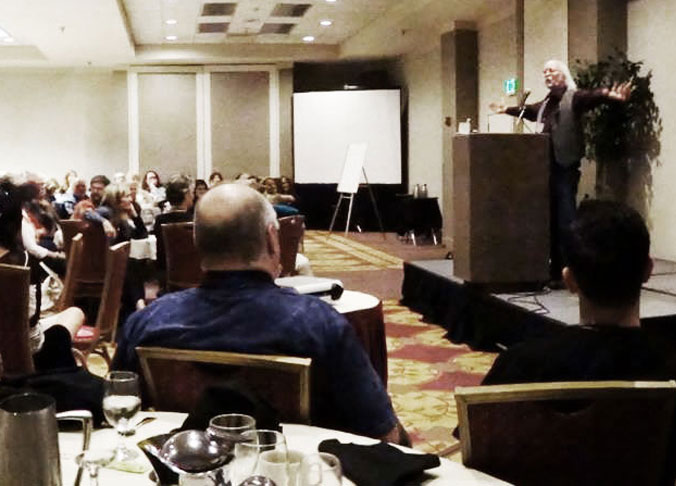Journey of the Craftsperson
Exciting news: we are right on the cusp of launching our Craftsperson’s level FCEA courses. Jeff, Catie, and I are really thrilled to finally be doing this. We’ve been working hard to create the material for a long time, and we’re actually just now putting the finishing touches on the last parts of it. Enrollment opens July 1st and the first course starts July 21st.
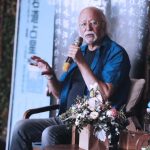
By the way, we call it the “Craftsperson” level for one simple reason: by the time you have absorbed all that we will be offering, you will really and truly be an “astrological craftsperson.” With astrology, there is always more to learn of course – that’s actually one of the great things about our field. But the bottom line is that you will have the knowledge and skills that allow you to serve your community as a full-service, one-stop astrologer.
“There are two people inside the artist, the poet and the craftsperson. One is born a poet. One becomes a craftsperson.“
– Emile Zola
We cannot tell a lie – with these upcoming courses, there’s a lot of hard work ahead. For one thing, this series of teachings takes a long time. When we take into account the 200 and 300 level coursework, we are talking about a commitment of 70 weeks. The FCEA is a serious, professional program. We think of it as more or less equivalent to training as a mental health professional or an attorney. There is a lot to absorb and the process cannot really be rushed without too much depth getting lost in the shuffle. We know there are people out there who take a six week astrology course and get their business cards printed up and their website launched. That’s not the FCEA.
What you have learned so far is how to read a natal chart. As you surely know by now, that’s a complicated task! Mastering it is a real accomplishment. In the first half of the Craftsperson program, the new FCEA 200 courses, you’ll add to what you already know by bringing in the ever-changing astrological environment as reflected in transits, progressions, and solar arcs. You will also learn about synastry – the astrology of human relationships. If you thought one chart was complicated, try reading two at the same time! You need to understand them both, plus their interactions, plus a powerful third type of chart called the Composite.
With “predictive” astrology – transits and so on . . . well, you already know what to do with a person’s natal Mercury. Now let’s try adding three more Mercuries to the mix: transiting Mercury, progressed Mercury, and solar arc Mercury. Each one has something important to say, and each one is in conversation with not only the natal planets, but the other moving ones as well.
Balancing all of this at once is tricky – but don’t worry! We think you will do just fine. That’s because you are already standing on the solid foundation we laid down in the FCEA 100 courses. You already know astrology’s basic language – and just like when you are learning to speak a foreign language, once you have mastered an initial vocabulary of 100 words, the rest of the process is a whole lot easier – you are on the glide path to eloquence. That linguistic skill is what you have already attained with your hard work in FCEA 100. Getting started is always the hardest part, so congratulations! You’re halfway there.
You’ve probably detected the fingerprints of my Sun sign, Capricorn, in our very structured, step-by-step approach to astrological mastery. Those same orderly values have guided us in creating the architecture of the 200 and 300 level course work. As I’ve said, with our Craftsperson courses, we are about to complicate the astrological picture enormously – but we will do it slowly and strategically. And, no surprise: we will continue to emphasize preserving your intuitive function above everything else – you will need it as the density of the data increases.
Birthchart analysis, transits and progressions readings, and synastries – in astrological practice, those techniques are the big three. Most professional counseling astrologers spend at least 90% of their time employing that triad of tools. Long ago, I could have given up teaching and writing, and just focused on offering those three skills in my private astrological practice. It would have been a good life, a meaningful one, and a prosperous one. That is what we mean when we say that as you complete our Craftsperson program, you can truly call yourself a professional-level astrologer. Naturally, your skills will deepen with experience – that’s true in any profession. But even a brain surgeon has to start somewhere. That surgeon might not want to tell his or her patient, “hey, this is the first time I’ve ever tried this” – but logic guarantees that, just like you, every brain surgeon sooner or later had to solo. You will too. And we will help you succeed.
Our Craftsperson program embraces not just our 200-level courses, but also the FCEA 300 courses. In those classes, we will add some more advanced techniques to what you know already – we’ll be working with the phases of the Moon, for example, along with lunar declination. We’ll also delve more deeply into all the planets, both in the natal chart and in motion. You will see many, many more real-life examples of planets in action. Your confidence will grow, as will your vocabulary and your arsenal of metaphors. We’ll get to know Chiron a lot more deeply. We’ll meet the newest major addition to the astrological syntax – Eris, orbiting way out in deep space far beyond Pluto. There is so much to know! But when you have internalized the Craftsperson material, you will have reached a significant plateau. The mountain continues upward, but once you arrive on that plateau, you can practice astrology effectively, helping other people with skill, confidence, and a significant degree of mastery.
Thanks for being part of our maiden voyage. Your feedback has been enormously helpful. Even more importantly, your faith and enthusiasm has sustained us as Jeff, Catie, and I have climbed our own mountain, often hanging onto cliffs and ledges by our fingernails, trying to stay one step ahead of you.
Once again, a deep and sincere congratulations to all of you on completing your Apprentice level work and entering our Craftsperson program.


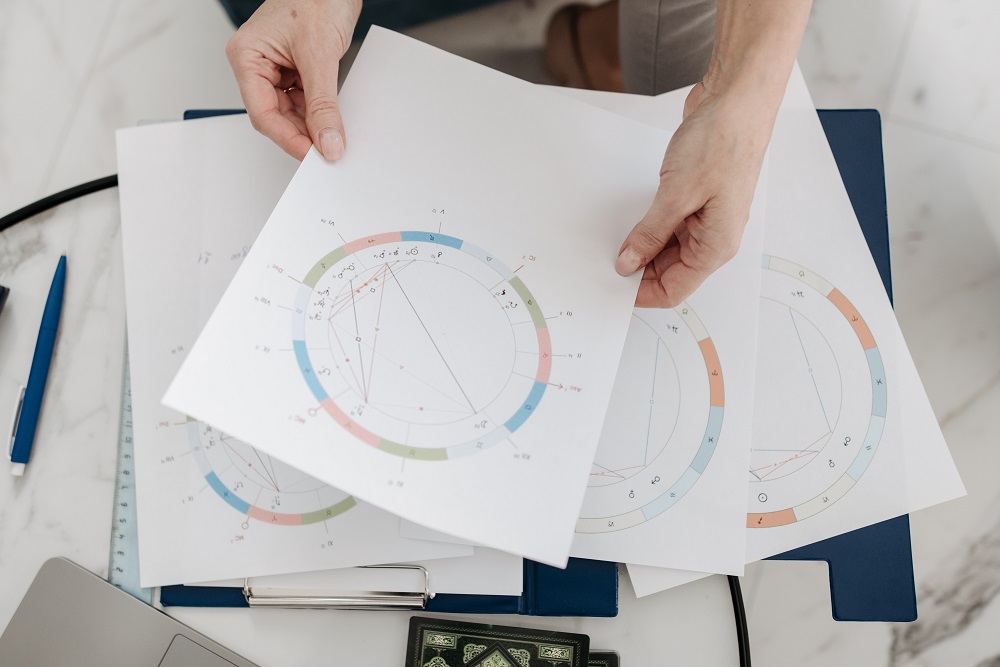
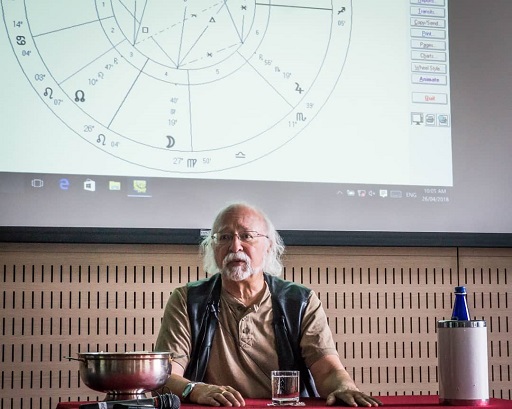



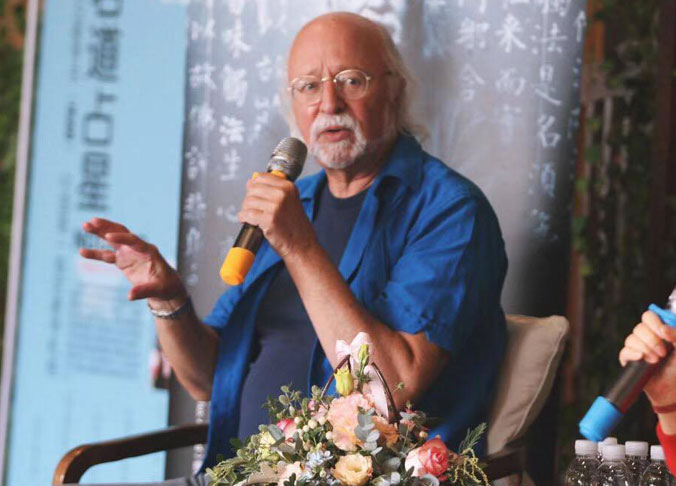
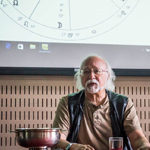 In the Forrest Center for Evolutionary Astrology program, we arbitrarily define three developmental stages for the advancing student: the
In the Forrest Center for Evolutionary Astrology program, we arbitrarily define three developmental stages for the advancing student: the 